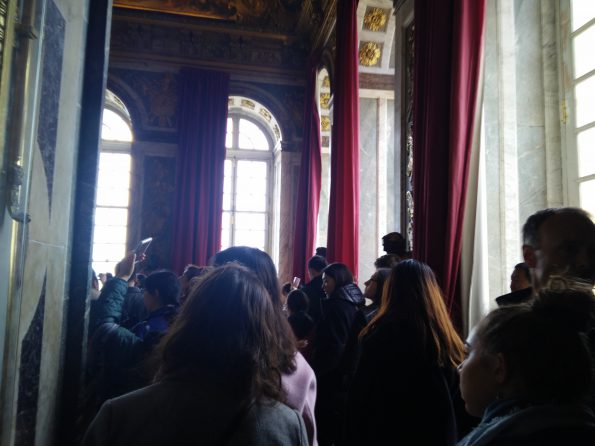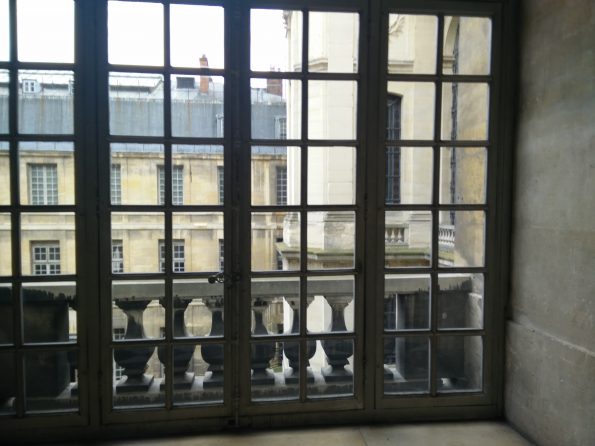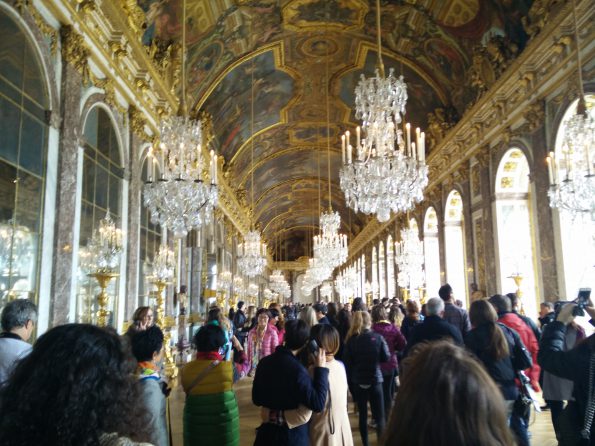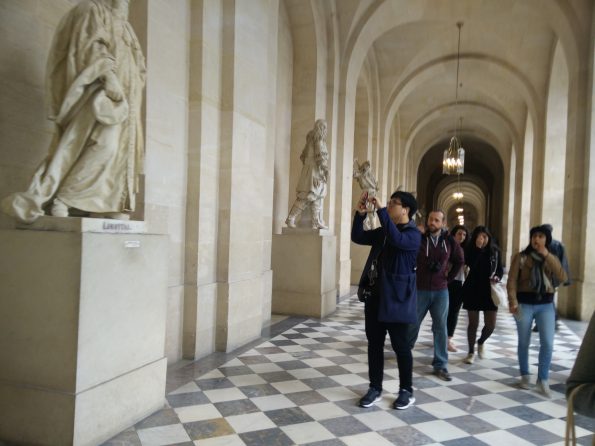
Crowds prepare to enter the famous Hall of Mirrors
Photo by Anhar Karim
63-year-old Catherine Pégard started her career as a journalist breaking stories across the political scene. But today she’s gone from reporting on politics, to being the subject of political reporting.
Born in Le Havre, Pégard worked in journalism for over thirty years and topped off her career in reporting by becoming the editor at the French news magazine Le Point. But when an old acquaintance called her to catch up on lost time, her life took a radical turn. This is because the friend in question was the then newly elected President of France, Nicolas Sarkozy. The two had met when she was a low-level journalist and he a little-known politician. But now that the two are both influential leaders in their fields, they decided it was time to work together. In a surprising turn of events, Pégard signed on to be one of Sarkozy’s political advisors, referring to herself as “a journalist for the president.”

A view of the outside courtyard
Photo by Anhar Karim
After a few years of this, Pégard marked her step into politics more formally when Sarkozy appointed her to the office of the president of the Public Establishment of the Palace, Museum and National Estate of Versailles. Colloquially, this means she became the president of Versailles. But what was the reason for Sarkozy’s seemingly infinite confidence in this journalist? Pégard saw it as simple:
“I’ll always tell him the truth.” She’d never alter her advice and work to tell him what he wanted to hear. And this paid off, because while Sarkozy only appointed her to Versailles for five years, the man who beat Sarkozy in the next presdiental election, the Socialist François Hollande, decided to leave her in charge.
Pégard understands that it is abnormal to hop careers so late in life.
“I knew it was probably forever,” she says about her decision to leave journalism in 2007 in favor of this new career track. But in some ways she never really left the field. She is aware that she is the first journalist to ever be president of Versailles and knows that that is strange. But in her view, the skillset of a journalist is more apt for this job than people would expect.

The Hall of Mirrors
Photo by Anhar Karim
“You need to be a journalist to be here sometimes,” she says. And that is because the entire mission of the person running any sort of historical site is to tell the narrative behind it.
“You must understand what it is, and you must tell the story,” she says. And doing this properly is crucial because, as she says, “the history of France is linked to Versailles.” That is, France’s entire story, from the beginning to now, is intimately linked to what happened at this particular site. And so it is important, essential even, that the French people, and even global communities, are aware of this history. So to ensure this she’s gotten very creative in thinking about the best ways to tell the story.
“Every day we try to create another way to understand Versailles,” she says. She admits with a chuckle that in the past she would write all of her articles in longhand. But she smiles with pride now as she announces that she not only learned how to use Twitter but employs it at Versailles daily to teach her followers about Versailles’s history. One innovative use of this medium was a series of tweets explaining the sorrows of the last king, Louis XVI, before his coming execution.

Tourists admire the art
Photo by Anhar Karim
However, as apt as journalism skills sound for this new job, being president of Versailles comes with a lot more administrative tasks as well. Pégard is in charge not only of conveying the story of Versailles, but also of preserving this cultural heritage, maintaining all the shops and businesses on the grounds, and caring for the hundreds of employees that keep the site running daily. All this isn’t easy, and many criticized Pégard’s initial appointment to this position because of her lack of experience in managing art sites such as this. But as she’s run the place without incident for so many years, she’s done a lot to prove these critics wrong.
Pégard’s new position has also changed her understanding of journalism. She spent most of her career looking into French politics with a critical eye. But now that she sits inside of the political bubble, she laments the negativity of journalists. She admits that, yes, the bad parts of politics are worse than you can imagine. But at the same time the good parts are great and need to be acknowledged. She wishes she could change journalism along these lines. But at the same time she admits that she is extremely grateful that it is not her job to cover the roller coaster ride that is the current French presidential election.
